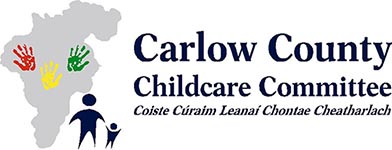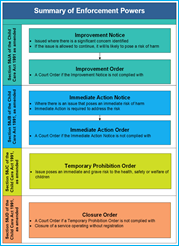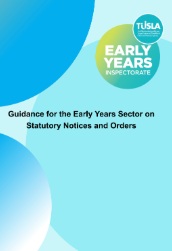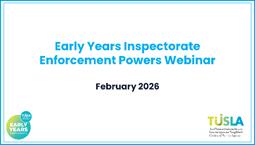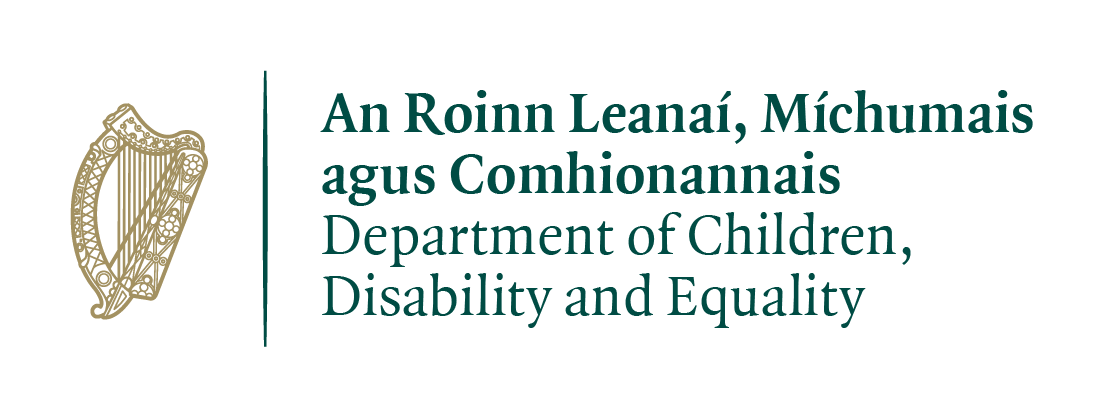Minister for Children, Disability and Equality, Norma Foley TD, has today provided an update on the Wellbeing Project checks announced last year. The project seeks to establish the wellbeing of children who had a Child Protection and Welfare referral closed with Tusla during the Covid-19 lockdown periods.
Methodology
The Project’s Steering Group comprises Government departments, key statutory agencies and stakeholders and is independently chaired by Tanya Ward, Chief Executive of the Children’s Rights Alliance.
The Steering Group adopted and finalised the project methodology in December, taking into account the rights of the children and families involved in each of these cases. This approach enables the project to check each case against the most up to date information available on official registers and prioritise cases of most concern. It will ensure the project operates in an effective but non-invasive / non-intrusive way. This graduated process consists of:
1) Work currently underway to review high-level details of all children’s cases that were closed during the period and verify details through a data-led approach at the first stage. This involves combining key data points in order to verify whether a child is in attendance in school or another State-funded service, with a Mandated Person present.
2) Prioritising Tusla’s social work time towards children that are no longer engaging with recognised State services, such as early years or education or where there is a reasonable cause for concern. Tusla social workers will be able to carry out initial enquiries for these children.
This proportionate approach ensures compliance with legal and privacy obligations while safeguarding children’s welfare.
The Tusla Wellbeing Project team began its work in October 2025. An initial review was carried out by Tusla – the Child and Family Agency. 76,546 children had referrals closed between 1st March 2020 and 28th February 2022. Approximately 42,000 cases had no new referrals or ongoing engagement with Tusla since the lockdown period. Following this review, approximately 18,000 cases were found to be of children who have since turned 18 years of age. There is no legal basis for Tusla to conduct a Wellbeing Check on a young person over the age of 18. On this basis 18,000 cases are outside the scope of the project. A small number of children have also been rereferred to Tusla since September 2025.
Data points from the 23,594 cases will be shared with the Department of Education and Youth to allow them to check these children against school enrolment data. Following this process, if the child is not known to the school system, further checks will be carried out with the Department of Social Protection, the Department of Children, Disability and Equality, the Health Service Executive, the Department of Justice, Migration and Home Affairs, the Department of Health and others as required. These checks will assist Tusla in identifying the whereabouts of these children.
Tusla will work with relevant Departments and Agencies to enrich case records with PPSNs and to perform structured cross‑matching against the school register, National Childcare Scheme data, and other relevant datasets.
Where reasonable grounds for concern arise for any child subject to the wellbeing check, in line with Children First, those children will be allocated to a dedicated team in Tusla’s Social Work service for further enquiries.
Minister Foley commented:
“I requested Tusla to conduct a series of wellbeing checks for children whose cases were closed during the COVID-19 lockdown period and the project is making real progress. These wellbeing checks add an important extra layer of assurance in the child protection space. Ultimately, our focus remains clear: making sure every child is safe, supported and protected. I firmly believe there will be a stronger child protection system after the conclusion of the wellbeing checks because there will be valuable learnings to take on board”
Minister for Education and Youth Hildegarde Naughton TD stated that:
“Schools and education settings play a vital role in safeguarding children and young people. I welcome the close collaboration between my department, Tusla and colleagues across Government to support this important work. By responsibly checking education data against Tusla records, we can take an important first step in confirming that children are known to the education system and, where this is not the case, ensure the appropriate agencies can act. This joined-up, proportionate approach strengthens our collective ability to protect children while respecting families’ rights and privacy.”
Independent Chair of the Steering Group, Tanya Ward said:
“The Kyran Durnin and Daniel Aruebose cases prompted this review. I am committed to ensuring this process is one that places the rights and best interest of the child at the very centre. Child protection and welfare need to be the top priorities for Government in the wake of such tragedies. We need to ensure we do everything in our power to prevent children falling through the cracks. This review can enhance Government and statutory bodies’ understanding of systemic gaps and risk patterns and help develop solutions that can adequately respond to these. A comprehensive Child Rights Impact Assessment will be included in the final report of the Steering Group with learnings that can help us improve our child protection services and practices.”
National Lead for the Tusla Wellbeing Project, Áine O’Keeffe, commented:
“Tusla’s priority is always the safety and wellbeing of children. This Wellbeing Check will provide an additional layer of assurance that children whose referrals to Tusla were closed during COVID-19 lockdown are attending school, a creche or State-funded service, where they have ongoing contact with mandated persons. Mandated persons, including teachers, early years professionals, healthcare staff and others, play an important role in spotting concerns about children and reporting them to Tusla. I welcome the extensive collaboration across government departments, the community and voluntary sector and independent social work expertise to work together to implement a robust and timely response to ensure that these children and young people are safeguarded and to identify any child who may need support.”
The final report of the Steering Group is scheduled for publication in July 2026. The steering group had initially been working towards a deadline of March 2026 but believes that further time is necessary for a robust, rights- based review. This will include a full Child Rights Impact Assessment by Bruce Adamson, former Scottish Children and Youth Commissioner and former Chair of the European Network of Ombudspersons for Children.
More information can be found at a new Tusla webpage: www.tusla.ie/wellbeingproject/
There is also a dedicated email address: wellbeingproject@tusla.ie
Date of establishment and period we are referencing
- The Minister for Children, Disability and Equality, Norma Foley, announced on 3rd September that she had requested Tusla to conduct a series of wellbeing checks for children whose cases were closed during the COVID-19 lockdown period. It was announced on 23rd September by the Minister that Ms. Tanya Ward, CEO of the Children’s Rights Alliance was appointed as the Independent Chair for the Steering Group. Shortly thereafter on the 30th September, the Secretary General of the Department of Children, Disability and Equality sent a letter out to each of the Departments and Agencies requesting a nomination from their organisation to the Steering Group. The first meeting of the Steering Group took place on 1st December 2025.
- The project will look at the children whose child protection case had a referral closed by Tusla during the COVID-19 lockdown period (1st March 2020 – 28th February 2022).
Steering Group members
Detailed methodology
- The Steering Group provides strategic direction and oversight ensuring that the child wellbeing check is carried out ethically and effectively, with consideration of the children and families’ legal rights.
- The Steering Group agreed that the Wellbeing Project would follow a rights‑based, low‑intrusion, data‑led approach designed to balance safeguarding responsibilities with children’s and families’ constitutional rights to privacy. This approach was refined over successive Steering Group meetings and was endorsed in principle on 15 December 2025. The Group agreed governance structures, a working methodology, and the use of a proof‑of‑concept phase to validate assumptions before full rollout. They also emphasised proportionality, data‑minimisation, and the need to avoid unnecessary re‑contact with families where cases had been properly closed, while ensuring that any reasonable grounds for concern would trigger a structured escalation back to Tusla child welfare and protection services.
- Cases were categorised by first assembling the full cohort of 76,546 referrals closed between 1 March 2020 and 28 February 2022, including those that had later been rereferred. Each case will be assessed through a sequencing process that confirmed whether the child was known to a State or State‑funded service, whether additional data was required to establish this, and whether any indicators suggested an outstanding welfare concern. The methodology envisaged three potential outcomes for each case, including “out of scope,” “wellbeing check complete,” or “reassigned for Children First review” where information could not provide assurance of the child’s current status. Initial workshops and technical workstreams established the rules for identifying cases requiring further exploration, including the absence of PPSNs, incomplete datasets, or missing links in education or social protection records.
- Matching against education and social protection data form the core of the non‑intrusive checks. Tusla will work with relevant Departments and Agencies to enrich case records with PPSNs and to perform structured cross‑matching against the school register, National Childcare Scheme data, and other relevant datasets. These checks aim to confirm that a child is enrolled in school, receiving a recognised State service, with a Mandated Person present, or otherwise visible through administrative data, without direct contact with families. The methodology was explicitly designed to use the least intrusive means necessary. Where cross‑matching fails to confirm a child’s status, statutory processes apply—cases will be escalated back to Tusla Operations and could be reassigned for formal social work review under Children First, including new referrals where reasonable grounds for concern are identified.
- Tusla will shortly write to Mandated Persons, reminding them of their role under Children First and the need to report any child protection concerns.
- The project is underpinned by a Data Protection Impact Assessment (DPIA) ensuring that all data sharing required by the project has a Data Sharing Agreement (DSA) between the relevant parties compliant with the GDPR requirements.
Engagement with stakeholders
- Briefings have been provided on the methodology to a number of key stakeholders including Empowering People in Care (EPIC), the Irish Association of Social Workers (IASW), the Data Protection Commissioner (DPC), the Ombudsman for Children, Dr Niall Muldoon and the Special Rapporteur on Child Protection, Caoilfhionn Gallagher KC. Additional engagement with other stakeholders is planned in the coming weeks.
Details on the figures
- The project will review 76,546 closed cases, to confirm that the children are known to a State service, or State-funded service and will ensure any welfare concerns are addressed.
- A figure of 42,000 cases was referenced in communications in September 2025. This figure consisted of all cases closed during the period above who did not have a new re-referral and/or were under 18 years of age made up to and including 5th September 2025.
- The 76,546 figure is all cases that were closed during the period, including those who have had a rereferral made.
- Approximately 18,000 cases from the original dataset have been closed as the individuals involved have now turned 18. Tusla has no statutory role in providing child protection services to adults, and the Steering Group are examining potential approaches to this cohort.
Timeline
- The final report of the Steering Group is scheduled for publication in July 2026, allowing time for a robust, rights-based review, including a full Child Rights Impact Assessment by Bruce Adamson, former Scottish Children and Youth Commissioner and former Chair of the European Network of Ombudspersons for Children, currently a Professor at the University of Glasgow and expert in children’s rights law.
